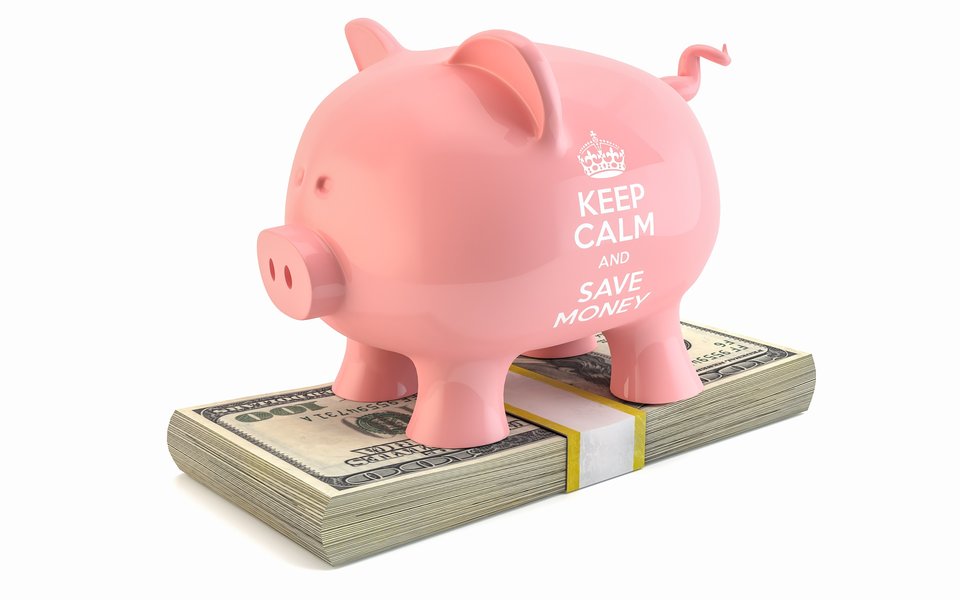Are Unhealthy Lifestyle Habits Keeping You in Debt?

Money is an inherently tense and stressful subject, and we all have our habitual ways of dealing with that fact. Unfortunately, most of those coping mechanisms—from shopping therapy to ignoring bills—usually end up costing us even more money and making it harder to save in the long-term.
Are you guilty of spending money (or at least failing to save it) in an attempt to forget that it exists? Luckily, if the answer is “yes”, those habits are easily remedied.
1. Impulse Buying and Shopping Therapy
Shopping can be as addictive as coffee and cigarettes. Worse yet, it’s also proven to release endorphins that make us think of shopping as a mood-booster, so it’s no wonder that getting a fancy new gadget or a new pair of pants makes us feel better.
Like “shopping therapy”, impulse buying can feel rewarding. That’s what it’s called when we see something on sale and think, “that’s what I’ve been missing!” But, when you come out of a store with a new purse when you just went for a pair of work shoes, impulse purchases can cause a huge hit to your finances.
Luckily, there’s a solution. Instead of charging your treats to a credit card because you deserve it, keep those for emergency-only purchases (like a new set of tires); then, save up for the fun purchases that you really want and have had time to think about.
Then, make a budget—and stick to it. Take a couple of weeks to write down exactly how much you spend every week on things like food, gas, and recurring bills. Next, build a little bit extra into that budget for emergency purchases and fun treats.
Once you’ve built a solid foundation for saving, figure out what shopping brings to your life and find something else that gives you a similar feeling. If it’s a rush of excitement, try exploring somewhere new when you’re bored. If it’s stress relief, try going for walks, doing something creative, or listening to relaxing music instead.
2. Snatching Up “Great Deals”
Our world is engineered to get us to spend money. Advertisements constantly tempt us with great deals. “50 percent off, today only!” or “0% APR for 14 months!” are hard deals to resist.
Before you pick up those clearance-rack ten-for-ten cookies, though, stop and think: Is it what I came here for? Do I need this, or do I want it? Maybe you need something like this, but this specific thing is more than you need.
If great deals are your budget-busting vice of choice, have a set of questions on-hand to either qualify or disqualify a purchase. Get in the habit of putting together a very specific list when you go to the store. Then, get in the habit of sticking to that list—even if a deal like this might never come up again.
3. Comfort Purchases
Do you buy a Starbucks coffee every morning or treat yourself to a daily $8 beer after work with the guys? If not, maybe you mask your frustrations with a daily bowl of ice cream or scour the Macy’s sale racks every weekend to make up for a frustrating week, because you’ve earned a little indulgence.
Seeking comfort is incredibly normal and human, but when it’s expensive comfort it can actually cause more harm than it does good. $3 here and $20 there may not seem like a big deal, but research shows that the average American spends $1,000 or more at coffee shops every year. And that’s just coffee. No wonder our bank accounts are running on empty by the end of the month!
To start breaking these habits, do a little exercise with yourself. Estimate how much you spend per day, week, month, and year on your comfort habit. Then, make a pact with yourself to decrease that number by a certain amount (like 50 percent).
You don’t have to completely deprive yourself, but take the percent you save and put it directly into your savings or 401k. You’ll be amazed at how much extra you can save in a year’s time.
Much like associations between places and food (couch and potato chips, anyone?), our desire to keep performing expensive behaviors is based on habit. So, when something happens to trigger one of those cravings (sadness leads to a desire to go shopping), find something cheaper that provides the same kind of satisfaction, such as the suggestions above…
…because breaking these habits will help you stop breaking the bank.
—
Do any of the above habits ring true for you? How did you shake them or how do you plan to? I’d love to hear about your experiences in the comments.




1 Comment
Wow, I really love the way you point out different ways for a college to pay for itself. You really inspire many people. I wish I knew this…Thanks Marco Leroc